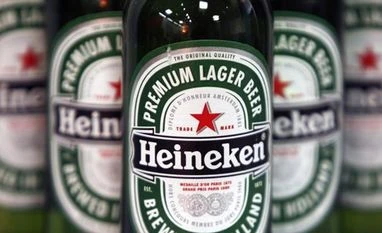A small cut in alcohol content of beers and other alcoholic beverages can go a long way in reducing harmful effects of alcohol, suggests a new study.
Alcohol accounts for significant death and disability worldwide. Among those aged 20-39, nearly one-quarter of deaths can be attributed to alcohol, according to the World Health Organisation.
"The idea is that a small reduction in alcohol — such as beer with four per cent ethanol content versus six per cent — would reduce alcohol intake per drinker even if the same overall amount of beverage is consumed," said lead author Jurgen Rehm from Centre for Addiction and Mental Health (CAMH) in Toronto, Canada.
A decrease in ethanol, the most harmful ingredient in alcoholic beverages, would be expected to lead to lower blood alcohol levels in drinkers. And this could reduce immediate harms such as injuries or accidents, as well as alcohol-related chronic diseases that develop over time, such as liver cirrhosis or cancer.
A key concern, however, is that drinkers would notice the difference in alcohol content, and consume more to compensate or switch to other beverages with more alcohol.
So the researchers searched for studies and reviews on all of these points.
More From This Section
The researchers found that such concerns around drinkers' behaviours were not warranted.
"We know from experiments that consumers can't distinguish between beers of different strengths," Rehm said.
In one study set at three fraternity parties, the amount party-goers drank did not differ with weaker versus stronger drinks.
In another study, participants were given lower- and higher-strength beer on two different occasions, and most did not report differences in how they felt after these sessions.
In both studies, participants had a significantly lower blood alcohol concentration with lower-alcohol drinks.
The review was published in the journal Lancet Gastroenterology & Hepatology.
)